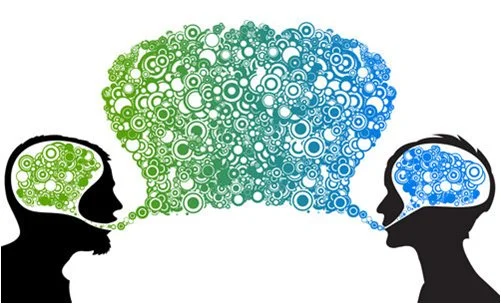Effective Communication and What It Can Do For You
Effective Communication, Skills for Work, School and Home
Effective communication is a crucial skill in any relationship, whether it be with a romantic partner, a friend, or a coworker. Good communication can strengthen bonds, resolve conflicts, and increase understanding and empathy. On the other hand, poor communication can lead to misunderstandings, resentment, and even the breakdown of relationships. In this blog post, we will explore some effective communication methods and provide examples of how to use them in everyday life.
Active listening
Active listening is a communication method in which the listener actively engages with the speaker by paying full attention, paraphrasing, and asking open-ended questions. This helps the listener understand the speaker's perspective and shows that the listener values what the speaker has to say.
For example, let's say a friend confides in you that they are feeling overwhelmed with their workload. An active listener might say something like, "It sounds like you're feeling really stressed out with all of the work you have to do. Can you tell me more about what's been going on?" This response shows that the listener is paying attention and cares about the speaker's feelings.
"I" statements
"I" statements are a way of expressing one's own feelings and needs without placing blame on the other person. This can help avoid defensiveness and encourage the other person to listen and consider your perspective.
For example, let's say you and your partner had a disagreement about household chores. Instead of saying, "You never do any of the cleaning," you might say, "I feel frustrated when the house is messy and I feel like I'm doing all of the work. Can we talk about ways we can divide the chores more evenly?" This "I" statement expresses your own feelings and needs rather than attacking your partner.
Nonverbal communication
Nonverbal communication includes body language, facial expressions, and tone of voice. It can convey just as much, if not more, than words alone.
For example, let's say you are having a conversation with a coworker and they are crossing their arms and avoiding eye contact. This nonverbal communication may indicate that the coworker is closed off or uninterested in the conversation. In this case, it might be helpful to ask if everything is okay or if there is anything you can do to make the conversation more productive.
Empathy
Empathy is the ability to understand and share the feelings of another person. It involves putting oneself in the other person's shoes and trying to see things from their perspective. Empathy can help build trust and improve communication in relationships.
For example, let's say a colleague tells you that they are feeling stressed about a project deadline. An empathetic response might be, "I can imagine how stressful that must be for you. Is there anything I can do to help or support you?" This response shows that you understand and care about your colleague's feelings.
In conclusion, effective communication is an important skill in any relationship. By using active listening, "I" statements, nonverbal communication, and empathy, we can improve understanding, resolve conflicts, and strengthen our bonds with others.


